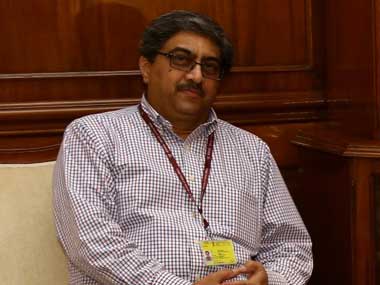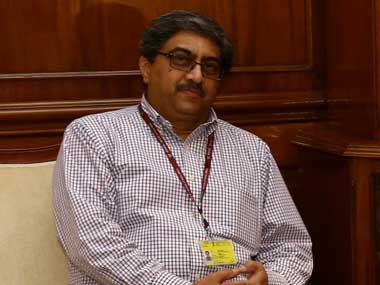Beijing: Any attempt by China to change the status quo along the Indian border may lead to another Doka La-like stand-off, India’s envoy Gautam Bambawale has said, adding that the best way to prevent such incidents is through candid and frank talks. In an interview to the Hong Kong-based South China Morning Post, Bambwale said the un-demarcated border between India and China is “the most serious problem between the two countries” and they need to redefine the boundary soon. [caption id=“attachment_4217815” align=“alignleft” width=“380”]  File image of Indian envoy Gautam Bambawale. Twitter @DefenceMinIndia[/caption] Bambawale said New Delhi will oppose the China-Pakistan Economic Corridor (CPEC) but won’t let the difference over Belt and Road become a dispute with Beijing. He also downplayed the reports of India joining the bloc of the US, Japan and Australia to counter China. The two militaries were locked in a 73-day stand-off at Doka La in the eastern sector of their border last year. The issue was resolved in August, only after souring the bilateral ties. “In order to maintain the peace and tranquillity (along India-China border), there are certain areas, certain sectors which are very sensitive, where we must not change the status quo. If anyone changes the status quo, it will lead to a situation like what happened in Doka La,” Bambawale said in the interview published on Saturday. “The Chinese military changed the status quo in the Doka La area and therefore India reacted to it. Ours was a reaction to the change in the status quo by the Chinese military. “… when incidents like Doka La happened last year, it meant that we were not frank and candid enough with each other. So we need to increase the level of frankness. “In the sense that if the Chinese military is going to build a road, they must tell us ‘we are going to build a road’. If we do not agree to it then we can reply that ’look, you’re changing the status quo. Please don’t do it. This is a very very sensitive area’,” he said. On India’s concerns about China’s Belt and Road project, Bambawale said if the initiative meets the norms of an international programme then New Delhi has no problem. “One of the norms is that the project should not violate the sovereignty and territorial integrity of a country. Unfortunately, there is this thing called the CPEC which violates India’s sovereignty and territory integrity. Therefore, we oppose it.” The CPEC is the flagship project of China’s Belt and Road project, a network of roads, ports and sea lanes that aims to connect Asia, Africa and Europe. India opposes it as it cuts through Kashmir held by Pakistan, but claimed by it. “We might have differences of opinion on Belt and Road, but that we must not allow that difference of opinion to become a dispute,” Bambawale said. Asked about India’s concerns over China making inroads into its neighbourhood, he said New Delhi was not worried about it. “Let me tell you very clearly that India has its own relationships with all these countries. These are very strong relationships and India is also doing a lot of projects in countries like Maldives, Nepal or Sri Lanka. So, our relationships with these countries are very strong, they are historical, people-to-people contacts.” “I don’t think we are worried about what China is doing. Those countries are free to have relationships with any third country, including China.” On the talks of India joining an emerging bloc called quad, Bambawale sought to allay China’s fears. “I do not see India becoming part of any alliance. Let me also repeat what I have already said to you before.” “As far as four countries are concerned, let me tell you very clearly that India has never been a part of any alliance. I think countries like India and China are too big to be part of any alliance,” he added. The envoy said that there are hosts of bilateral meetings lined-up, including the one between Indian Prime Minister Narendra Modi and Chinese President Xi Jinping on the sidelines of the Shanghai Cooperation Summit in June.
Any attempt by China to change the status quo along the Indian border may lead to another Doka La-like stand-off, India’s envoy Gautam Bambawale has said, adding that the best way to prevent such incidents is through candid and frank talks
Advertisement
End of Article


)

)
)
)
)
)
)
)
)



